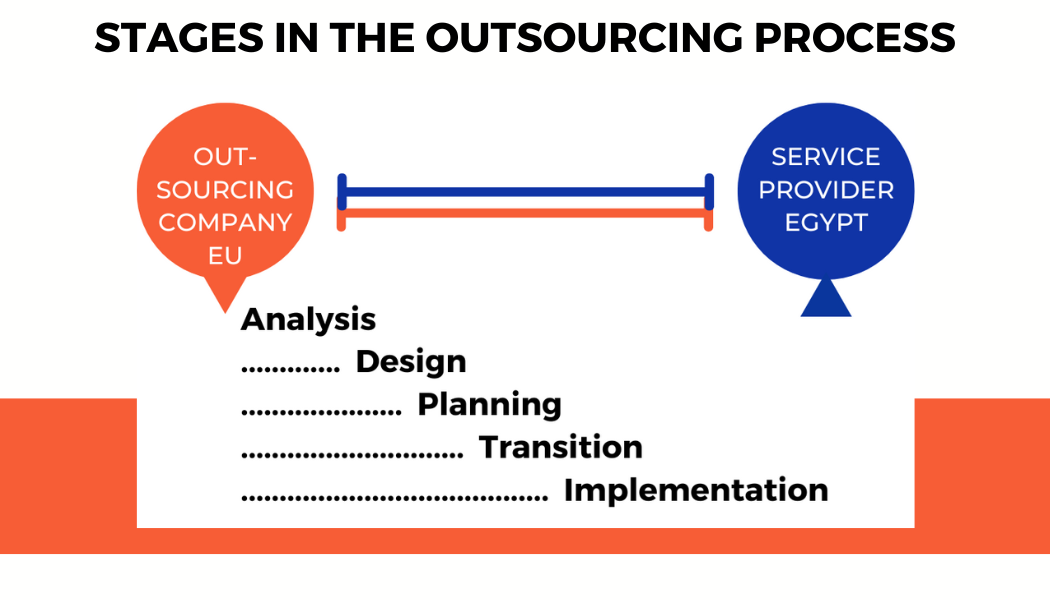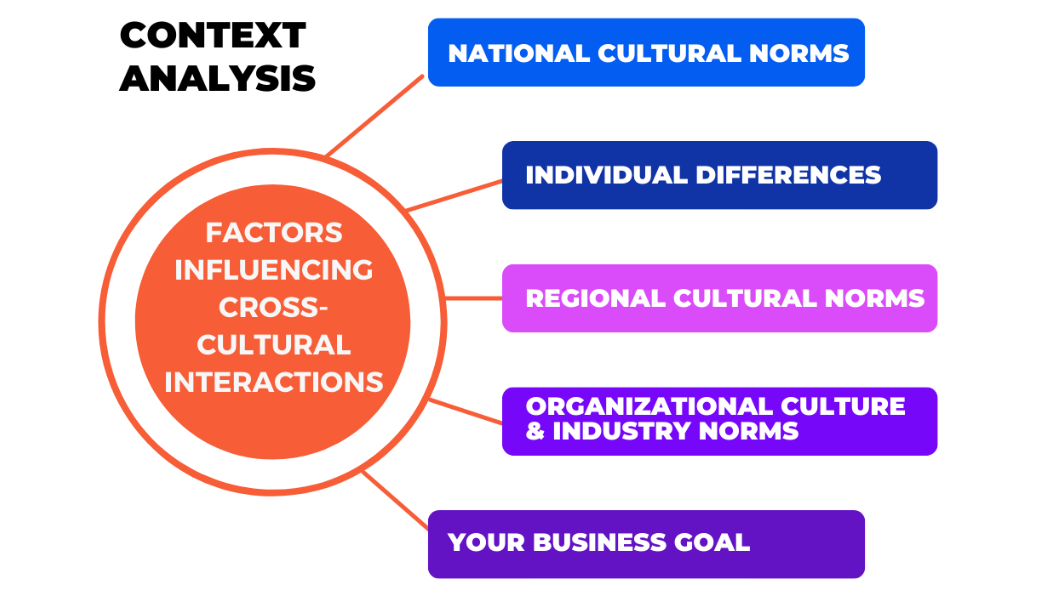EGYPT
CULTURE & KNOWLEDGE TRANSFER IN OUTSOURCING
18. October 2024, Birthe Ravn Greisen
CROSS-CULTURAL PERSPECTIVES ON KNOWLEDGE TRANSFER IN IT OUTSOURCING TO EGYPT
For the outsourcing company, handing over a critical part of their business operations to another company relies on the successful implementation of the outsourcing project.
For the Egyptian IT service provider, achieving this success depends on a complete and effective knowledge transfer all through the outsourcing process.
As a result, knowledge transfer and sharing are critical strategic elements in outsourcing partnerships. When outsourcing occurs across borders, cultural factors often impact how knowledge is exchanged and utilized.
This article explores cross-cultural influence on 5 stages of knowledge transfer in IT outsourcing to Egypt.
Egyptian Culture
While Egypt shares some cultural similarities with Europe and the GCC countries, differences in business communication, work ethics, and management styles remain. Outsourcing partners can achieve significant results, by investing in cross-cultural training, especially in light of Egyptian employees being culturally adaptable.
Two Types of Knowledge in Outsourcing
Knowledge can be categorized into two types:
- Explicit knowledge – tied to rules, tools, and processes.
- Tacit knowledge – what we know but have difficulties explaining, stored in people’s heads.
Sharing explicit knowledge can be problematic if documentation is outdated or missing, making informal communication necessary. However, sharing tacit knowledge is even more challenging. Adding to this, cross-cultural distance, lack of personal relationships, and low trust can create resistance and misunderstandings.
Successful Knowledge Transfer
To ensure successful knowledge transfer, both explicit and tacit knowledge must be fully conveyed, allowing the recipient to effectively absorb and apply it. The process is influenced by variations in management and communication styles across countries and company cultures, so it should be carefully structured to minimize trial-and-error costs.
Cross-Cultural Flexibility in Outsourcing Interactions – a two-way process.
Who is responsible for making cross-cultural adjustments during the knowledge transfer process? The outsourcing company, or the IT service provider? While the IT service provider (the vendor) must adapt to stay competitive, successful collaboration and teamwork require both parties to engage. Therefore, the outsourcing company must also demonstrate cultural flexibility.
Five Stages in the Outsourcing Process.
The process of outsourcing from initiation to implementation can be summarized in five stages:
- Internal and External Analysis
- Design
- Planning and Preparation
- Transition
- Implementation
The five stages of the outsourcing process and cross-cultural dynamics.
Stage 1: Internal and External Analysis. At this stage, the outsourcing company conducts a comprehensive analysis to select an outsourcing destination and service provider. While no direct knowledge transfer occurs yet, cross-cultural factors are already considered during the company’s evaluation. This is when the Egyptian service provider begins establishing trust. Effective market communication from the Egyptian service provider can greatly impact how the company’s technical abilities, soft skills, and cross-cultural competencies are perceived.
Stage 2 and 3: Design and Planning & Preparation. In stages 2 and 3, the initial knowledge transfer takes place as the outsourcing partners engage and establish the team. These stages are critical for the project’s successful transition, implementation, and long-term outcomes. Documenting both the technical and soft skills required is essential. Additionally, mapping the cultural profiles of team members should be considered to facilitate discussions on managing cross-cultural interactions.
The knowledge transfer approach should be adapted to suit both organizational and national cultures. Interactive workshops are particularly effective for fostering trust, communication, and collaboration, which are key to successful knowledge sharing. These workshops also help in sharing tacit knowledge and experiences.
While Egyptians generally possess strong cultural readiness, employees from both the service provider and the outsourcing company need to participate in training on cultural awareness, cross-cultural interaction strategies, and teamwork to ensure effective knowledge transfer and collaboration.
Context is Key
Knowledge transfer in each stage of the IT outsourcing process occurs within a cross-cultural context. National cultural differences provide a useful framework for understanding, but should not be used to stereotype. It’s important to recognize that individuals within any culture vary, as everyone has their own unique “cultural thumbprint”. Remember, we engage with people, not cultures. In your analysis, consider not only cultural differences but also similarities, organizational cultures, and regional variations.
Factors influencing cross-cultural interactions
Stage 4: Transition period. At this stage, the actual knowledge transfer begins. A key factor for success is ensuring employees are motivated to both share and absorb knowledge. The commitment to cross-cultural teamwork and the engagement of team members at this stage play a crucial role in the future success of knowledge transfer and the entire project.
However, a lack of trust, often arising from cross-cultural differences, can challenge the willingness to share and absorb knowledge. Another potential obstacle is the fear among employees of the outsourcing company that they may lose their jobs as operations are transferred to a third party. This concern could also hinder motivation for cross-cultural adjustments and collaboration.
Stage 5: Implementation. In stage 5, operational responsibilities shift from the outsourcing company to the Egyptian service provider. This stage addresses “what needs to be done” and “how to do it“, emphasizing cross-cultural communication, critical thinking, conflict resolution strategies, and trust-building measures.
FOR CROSS-CULTURAL TRAINING AND WORKSHOPS:
PLEASE VISIT: RAVN cultures-across – services
and always feel free to contact me: mail@cultures-across.dk
FOR MORE INSIGHTS:
Always consider the context of your specific situation. When analyzing your context include individual differences, company and industry norms, regional cultural norms, and your personal and company goals. The extent to which cultural differences matter depends on your specific context.
Remember, we don’t deal with cultures,
we deal with individuals.
Birthe Ravn Greisen
Cross-cultural trainer, MSc in Economics and Business Administration, Author




